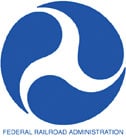
“Back to Wisconsin” is the fight song of the UTU Collective Bargaining Defense Fund and other organizations determined to continue a successful “red zone” defense against anti-union political zealots.
Organized labor – with considerable assistance from the UTU Collective Bargaining Defense Fund – helped engineer the recall of two Wisconsin state senators who plotted to eliminate collective bargaining rights for state workers in that state, and then defeated, at the ballot box, an Ohio legislative attempt to do the same.
Elected lawmakers nationwide, as well as political analysts, fully digested that those successes by organized labor and its friends and now recognize organized labor is not to be abused or ignored.
Now the focus turns to a recall of Wisconsin Gov. Scott Walker, the architect of the Wisconsin assault on collective bargaining rights and organized labor. A successful recall could stop dead in its tracks further efforts by anti-labor zealots — nationwide and in Congress — to attack the fundamental rights of working Americans to organize and bargain collectively.
Indeed, in union there is strength, and now that strength is being focused on obtaining 540,000 signatures of Wisconsin voters to force a recall of Gov. Walker – the anti-union politician who started this unnecessary fight.
As the Associated Press reported, the drive to collect the 540,000 signatures is “fueled by anger over Walker’s successful push to take away nearly all public worker collective bargaining rights.”
It is fueled also by recognition among working families — union and non-union — that this was only the opening salvo in an effort to destroy labor unions and return America to the days when workers were entirely beholden to the daily whims of management.
In Wisconsin, the UTU Collective Bargaining Defense Fund is helping to organize rallies, buy television and radio air time to explain the recall effort, engage in door-to-door canvassing of voters, operate phone banks, send letters to the editor, meet with media editorial boards, and establish “sign the petition” booths throughout the state.
Less than two weeks into the recall campaign, volunteers have collected more than 300,000 signatures. With 540,000 signatures, a recall election could be held as early as April 2012.
In an incredible statement, Gov. Walker told a Wisconsin radio station, in response to the rallies, “You see a total disregard for people’s families and others here.” One would have thought he was responding to his own anti-labor efforts.
For more information on the UTU Collective Bargaining Defense Fund, click on the following link:
https://www.smart-union.org/collective-bargaining-defense-fund/

 UTU members and their dependents insured under the Railroad Employees National Early Retirement Major Medical Benefit (ERMA) Plan (GA-46000) will have their lifetime maximum amount of coverage increased, effective Jan. 1.
UTU members and their dependents insured under the Railroad Employees National Early Retirement Major Medical Benefit (ERMA) Plan (GA-46000) will have their lifetime maximum amount of coverage increased, effective Jan. 1. WASHINGTON – A Final Rule has been issued by the Federal Motor Carrier Safety Administration (FMCSA) prohibiting bus (including school bus) drivers and truck drivers, operating in interstate commerce, from using hand-held cell phone while operating their vehicles.
WASHINGTON – A Final Rule has been issued by the Federal Motor Carrier Safety Administration (FMCSA) prohibiting bus (including school bus) drivers and truck drivers, operating in interstate commerce, from using hand-held cell phone while operating their vehicles. WASHINGTON — Congress, unable to agree on very much lately, has agreed on funding for Amtrak, bus transportation, commercial aviation and transit through Sept. 30, 2012.
WASHINGTON — Congress, unable to agree on very much lately, has agreed on funding for Amtrak, bus transportation, commercial aviation and transit through Sept. 30, 2012. WASHINGTON – The Federal Railroad Administration, in response to inquiries about when it is permissible for an employee directing the movement to operate a motor vehicle in the context of a pushing or shoving movement, has issued the following advisory:
WASHINGTON – The Federal Railroad Administration, in response to inquiries about when it is permissible for an employee directing the movement to operate a motor vehicle in the context of a pushing or shoving movement, has issued the following advisory: